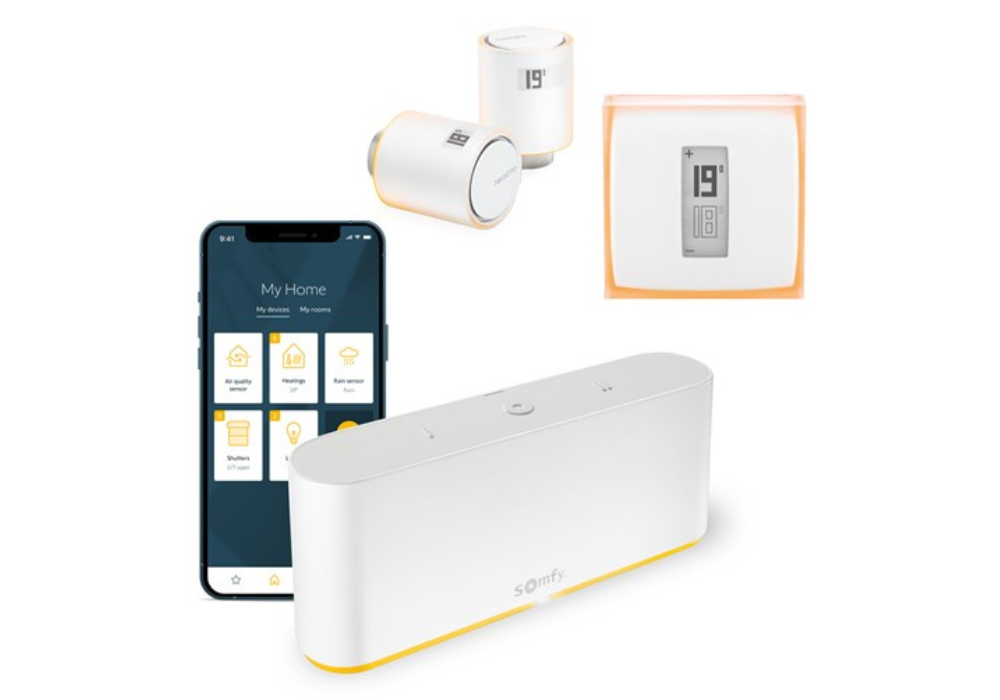
Netatmo og Somfy udvider deres smarte samarbejde

Here, we’ll take a closer look at how we determine renewable energy.
Renewable energy is a topic that is increasingly featured in the media, as it offers a sustainable solution to climate change. To stop damaging the planet, we need to move away from polluting fossil fuels and towards clean, green and renewable energy.
Of all renewable energy options, solar power and wind power are the most popular among public and private entities alike (for example, you may have seen large-scale wind turbine farms to harness wind power for the national energy grid, or solar power panels on the roofs of private homes).
In a world that’s fixated on the impact of climate change, it’s important that we look to renewable energy to change the course of our energy consumption and how we respect and protect the planet.
The key to renewable energy sources is that they are - you guessed it - renewable. Solar and wind power, geothermal energy and biomass will simply keep on being available, as the sun, wind, plants and geothermal power are ongoing resources.
This is in contrast to finite fossil fuels, such as coal, oil and gas, which will eventually run out. Each time we burn these fossil fuels, we pollute the environment. Renewable energy sources provide a non-polluting alternative to these energy sources, which is far more positive for the planet.
As we’ve seen, renewable energy sources are so vital a resource as they are a non-finite resource of power.
But that’s not the only key aspect of renewable energy that makes it such an attractive option for changing our energy consumption habits for the better. Renewable energy is also a totally clean option, that’s not damaging to the environment.
Unlike when we burn fossil fuels, which release polluting gases into the environment, we don’t release these types of fumes when we use renewable energy to power our lives. Promoting the use of renewable energy to power our consumption of heating and hot water in the home is, therefore, vital for allowing us to protect the environment.
If we want to reverse the greenhouse effect, it’s vital that we embrace the use of renewable energy in all aspects of our lives, from home heating and hot water to industrial manufacturing and travel on a much larger scale.
At present, renewable energy is a more expensive source of energy when we compare it to standard fossil fuel energy. However, we need to absorb these extra costs in order to better protect the environment.
In short, starting to use renewable energy for your heating and hot water at home is a vital investment in the environment.
Solar energy is perhaps the best known renewable energy, but there are many other sources of renewable energy.
Renewable energy is widely known for its clean, green and sustainable aspects.
It’s vital to choose renewable energy in order to direct our global fuel consumption towards a cleaner, green future for the world.
Whether we choose to use biomass, geothermal energy, water, solar or wind power to fuel this change towards more sustainable energy options, all these renewables will make a significant difference to how well we can protect the planet.
From installing solar power cells on the roof of your home to harnessing geothermal power via the national grid, there are multiple options for using renewables in our daily lives.
If you’re keen to reduce your impact on the environment, renewables are a vital energy source to boost this change. Reduce your carbon footprint by introducing renewable energy into your daily life!
From greener electricity to more sustainable heating, it’s vital to introduce more renewables into your fuel consumption to protect the environment. From personal use of renewable energy at home to larger-scale use of renewables for the travel and industry sectors, the global movement towards renewable energy will define the future of our world.
To go further in your transition to cleaner energy, install a Netatmo Smart Thermostat in your home to control and adjust your energy consumption. If you’re looking to lower your energy usage and your heating bill at home, it’s a smart option for you.